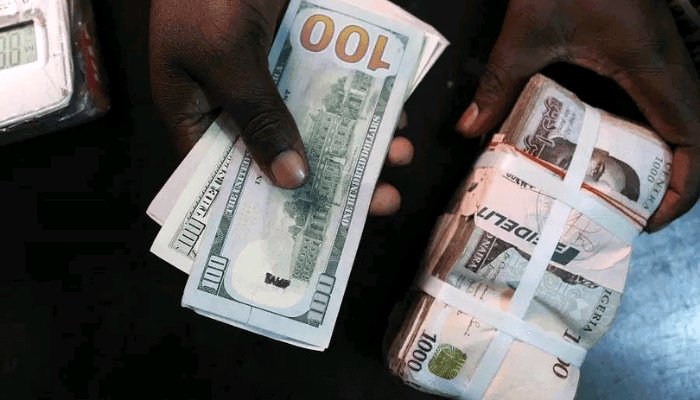
The bad performance of the Nigerian currency, Naira continued at the peer-to-peer (P2P) segment of the foreign exchange (forex) market.
On Friday at the P2P market, it depreciated against the United States Dollar by N16 to sell for N736/$1 compared with the previous day’s exchange rate of N720/$1.
Also, the Nigerian currency lost N2.80 or 0.66 per cent against the greenback in the Investors and Exporters (I&E) window of the FX market as it closed at N429/$1 in contrast to Thursday’s value of N426.20/$1.
It was observed that the domestic currency weakened against its American counterpart despite the value of forex trades going down during the session, according to data from the FMDQ Securities Exchange.
The turnover for the session was $59.59 million as against the $129.13 million achieved in the preceding session, indicating a decrease of $69.54 million or 53.9 per cent.
In the parallel market, the local currency had a breather as it appreciated against the US Dollar for the first time in some days by N5 to trade at N705/$1 compared with the previous day’s N710/$1.
In the interbank segment, the Naira lost N2.48 against the Pound Sterling to sell for N504.21/£1 versus the preceding day’s N501.73/£1 and against the Euro, it gained 86 Kobo to settle at N421.32/€1 in contrast to the N422.19/€1 it closed on Thursday.
Meanwhile, the Association of Bureaux De Change Operators of Nigeria (ABCON), has advised the Central Bank of Nigeria (CBN) to abolish its official exchange rates even though it is cheaper when compared to Black Market rates.
This, it argued would give the local currency strength against the dollar.
Alhaji Aminu Gwadabe, the President of ABCON, who made this known, maintained that if the central bank is serious about addressing the consistent depreciation of the naira against the dollar, it needs to do all it takes within its power to sustainably inject the dollar into the market.
“It might sound counterintuitive, but the way out of the current frenzy is to abolish the official fixed exchange rate and allow the Naira to float. CBN should contemporaneously undertake a large-scale dollar intervention in the open market that can inspire confidence in the Naira and checkmate the current tailspin.
“Once there is a significant positive movement, the market will react and, in all probability, spur an avalanche of panic selling and further buoy the Naira,” Gwadabe said as he argued that the loss in the value of the local currency is reversible.
